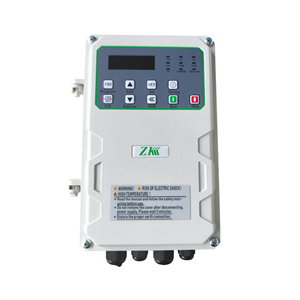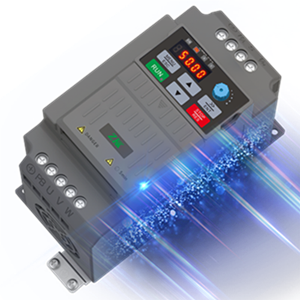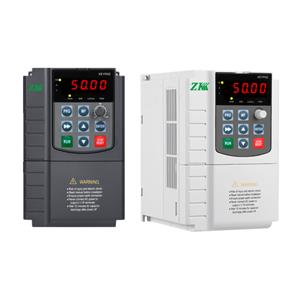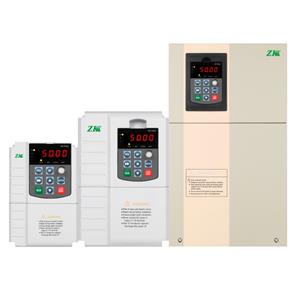太阳能水泵逆变器与智慧农业的融合
近年来,可再生能源技术与智能农业实践的融合催化了农业领域的变革,为更可持续、更高效的耕作方法铺平了道路。在这些进步中,太阳能水泵逆变器已成为一项关键创新,尤其是在电力和水资源匮乏的地区。本文深入探讨了太阳能水泵逆变器与智能农业的融合,阐明了这种协同效应如何彻底改变农业实践、提高运营效率并促进环境可持续性。
太阳能水泵逆变器的作用
太阳能水泵逆变器是一种先进的设备,可以将光伏 (PV) 板产生的直流电 (DC) 转换为交流电 (AC) 来驱动水泵。这类系统在偏远或离网地区尤其有利,因为这些地区缺乏或缺乏传统的电力基础设施。通过利用太阳能系统,农民可以确保持续稳定的供水,以满足灌溉、畜牧和其他农业需求。
太阳能水泵逆变器的显著优点包括:
1. 能源效率:太阳能系统是一种清洁的可再生资源,可显著减少对化石燃料的依赖,从而降低温室气体排放。
2. 节省成本:安装后,太阳能水泵逆变器的运营成本极低,因为它们利用免费的太阳能而不是昂贵的柴油或电网电力。
3.可靠性:太阳能水泵逆变器可以在偏远地区自主运行,确保农作物和牲畜的可靠供水。
4. 可扩展性:这些系统适应性很强,可以根据农场规模和特定的用水需求轻松扩展。
智慧农业:数据驱动的方法
智慧农业利用物联网 (IoT)、人工智能 (AI) 和大数据分析等先进技术来优化农业实践。其首要目标是最大限度地提高作物产量,最大限度地减少资源消耗,并减轻环境影响。智慧农业的关键组成部分包括:
1. 支持物联网的设备:土壤湿度传感器、气象站和其他支持物联网的设备收集有关环境条件、作物健康和用水量的实时数据。
2. 自动化:自动化灌溉系统、无人机和机器人设备简化了农业操作,降低了劳动力成本并提高了效率。
3. 数据分析:人工智能算法分析收集的数据以提供可操作的见解,例如最佳种植时间、灌溉时间表和病虫害控制措施。
4. 远程监控:农民可以通过智能手机或电脑远程监控和控制他们的操作,确保及时干预并降低作物歉收的风险。
太阳能水泵逆变器与智能农业的协同作用
太阳能水泵逆变器与智能农业的结合,产生了强大的协同效应,增强了农业实践的可持续性和效率。这种融合体现在几个关键领域:
1. 精准灌溉:太阳能水泵逆变器可以与物联网灌溉系统无缝集成,该系统利用土壤湿度传感器的实时数据,为作物输送精准量的水。这种精准灌溉可以最大限度地减少水资源浪费,确保作物最佳生长,并节约水资源。
2. 能源独立:通过利用太阳能系统,农民可以实现能源独立,降低受停电和能源价格波动影响的风险。这对于可靠电力供应仍面临巨大挑战的发展中国家尤其有利。
3. 经济高效的解决方案:太阳能水泵逆变器与智能农业系统的结合,减少了对体力劳动、柴油和过度用水的需求,从而降低了运营成本。这使得小农户更容易实现可持续农业。
4. 环境效益:太阳能系统零排放,从而减少农业活动的碳足迹。此外,精准灌溉可以减少水流失和土壤侵蚀,维护生态系统健康。
5. 可扩展性和适应性:太阳能水泵逆变器和智能农业系统高度适应不同的农业规模和条件。无论是部署在小型家庭农场还是大型商业运营,这些系统都可以根据特定需求进行定制。
案例研究:印度太阳能智能灌溉
在印度,农业是经济的基石,但水资源短缺问题日益严重。将太阳能水泵逆变器与智能农业系统相结合,已取得显著成效。拉贾斯坦邦和马哈拉施特拉邦等地区的农民已成功实施这些系统,利用土壤湿度传感器的数据优化用水,从而提高了作物产量并减少了用水量。太阳能水泵逆变器的初始投资可通过长期节省的能源和水成本得到补偿,使其成为可持续农业的可行解决方案。
挑战与未来前景
虽然太阳能水泵逆变器与智能农业系统的集成带来了诸多益处,但也存在一些挑战。安装太阳能水泵逆变器和物联网设备的初始资本支出对于小农户来说可能过高,尤其是在发展中国家。此外,农村地区缺乏技术专业知识和基础设施也可能阻碍这些技术的推广。
然而,在政府政策、补贴和培训项目的支持下,这些挑战是可以缓解的。农业的未来在于太阳能系统和智能农业技术的广泛应用,这不仅将增强粮食安全,也将为全球应对气候变化的努力做出贡献。
太阳能水泵逆变器与智能农业的结合,代表着可持续农业发展道路上的重大进步。通过将太阳能的清洁能源与智能农业系统的精准高效相结合,农民可以优化运营,降低成本,并最大限度地减少对环境的影响。随着世界面临与粮食安全、水资源短缺和气候变化相关的日益严峻的挑战,这种创新方法为实现更具可持续性和韧性的农业未来提供了一个充满希望的解决方案。




